ECHO-Chicago Focus Group Report

Later this year, ECHO-Chicago will be celebrating its 10th anniversary! Last spring, we began the process of looking at what’s been accomplished in our first decade. We reached out to current and past participants to learn about why they’ve joined our series, what they’ve loved about ECHO-Chicago, and what we can improve upon. We invited any participant who had joined three or more series—someone who has quite a bit of ECHO experience to talk about– to join these focus groups. We’re excited to share some of what we learned here, focusing this post on some of what we heard makes ECHO-Chicago successful.
Across the board, our providers love ECHO series and our facilitators, which was so gratifying to hear! But what makes an ECHO series useful for providers? The best series, we heard again and again, were the ones where the facilitation team focused on very practical, very specific guidelines and protocols. A physician assistant said of our Resistant Hypertension series: “Honestly, I took some of the algorithms that [Dr. Bakris, our Lead Facilitator for the series] used out of the lectures and still have them on my laptop, on my desktop and I just pull them up when I need them.” A physician said that she “found the Hepatitis C series to be one of the most practice-changing. I’m most able to take those skills, definitely use them on a regular basis with my patient population and decrease referrals and improve patient care. I’ve also been able to teach what I’ve learned to the other nurse practitioners in the clinic.” The ability and confidence to share new knowledge with both colleagues and patients is what ECHO is all about!
Another physician assistant relayed that in addition to the utility of actionable information, she finds it helpful to know what resources are available in the community to help address related issues. Our facilitators always share the resources they know and use, and the chat feature on Zoom allows participants to share with one another as well, especially when sharing resources based in their own communities—it really is #allteachalllearn!
One of the other things we learned that ECHO does best is increasing the confidence of participants to provide the care their patients need. Oftentimes a participant already has some familiarity with a series topic from their medical training, but by joining ECHO they gain deeper knowledge and build their confidence in their ability to provide that care. One physician assistant noted that while she may already treat a lot of hypertension at her clinic, participating in ECHO helped her feel able to handle that next step of care— to run that extra test or prescribe that new medication—before referring to a specialist. A nurse practitioner at a community health shared that before joining our series, she didn’t feel confident prescribing antidepressants and other first-line medications for her patients’ mental health needs to manage symptoms in primary car, but afterwards felt the confidence to write those needed prescriptions.
One physician shared a success story of a young girl she worked with who had been hospitalized due to her mental health needs. After joining ECHO, that physician was able to keep her care outpatient. Today, that young patient is about to graduate from high school, and has not had any further hospitalizations. Another provider shared: “it [has] given me more resources in terms of… different places I can go to, to get assistance and help, but then also just made me feel more comfortable in managing patients, and keeping them within the clinic as opposed to having to send everyone to a specialist.” Those specialist referrals may still be necessary, but providers overwhelmingly felt more capable of handling more complex, chronic cases in their own settings before referring their patients out for treatment.
We’re glad that providers are getting so much out of joining ECHO, and know the same can be said for programs around the world! Look out for more information in our next blog post in May about our quality improvement processes and how we work to continuously grow!
Back to Updates Register
Register
